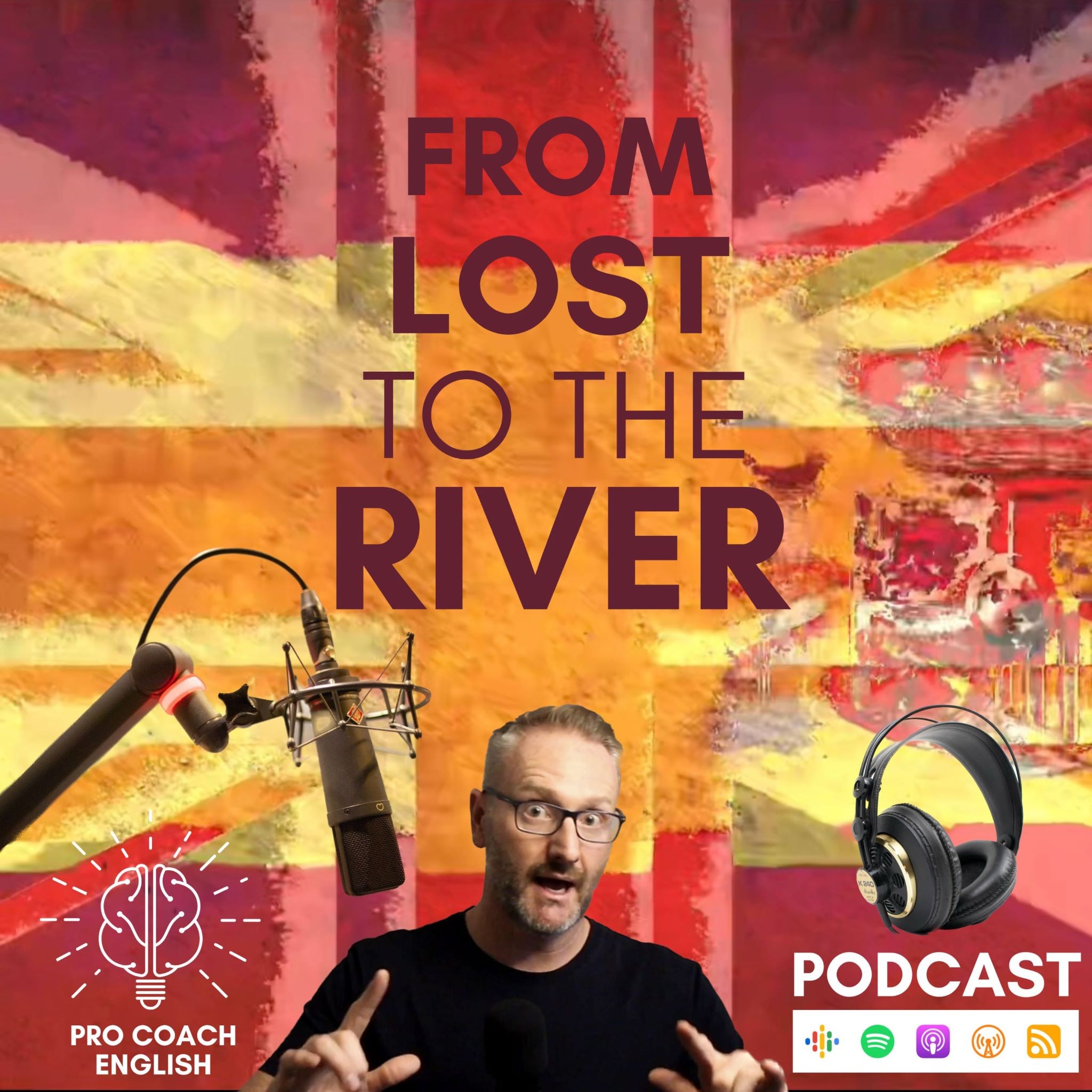Listen "(7 min) Confianza vs Perfección | Un episodio en español"
Episode Synopsis
If you’ve ever felt your English vanish the moment someone hesitates or looks confused, you’re not alone. We’ve all felt that drop in confidence when suddenly everything we know seems to disappear.
In this Spanish-only extract from my conversation with language coach and author Daniele Ponzo.
We explore why so many people freeze when speaking English, and how to move past the fear of “getting it wrong.” Listen to the full conversation here on Spotify and here on Apple Podcasts.
Today we're sharing our stories of learning Spanish from scratch, facing that all-too-familiar “face of confusion,” and realising that true connection matters more than being perfect.
You’ll hear how we learned that confidence grows through use, not just study, and how speaking your target language (in your case, English) by “swimming in the pool of the language” helps you unlearn perfectionism and massively boost your confidence.
Daniele shares practical ways to stay calm in meetings, focus on your message (not your mistakes), and sound more natural when presenting and leading teams.
If you’ve ever felt imposter syndrome or shame about your accent, this episode will help you rethink what “good English” really means, and remind you that your value as a communicator isn’t measured by grammar.
Learn more about Daniele and his coaching services on his website at danieleponzo.com
Connect with us on LinkedIn: Daniele Ponzo & Richard Marshall
Check out Daniele’s book 'Easy English for IT' here on Amazon.
And his podcast 'The Non-Native Leader' here on YouTube.
Watch this episode of 'From Lost To The River' with subtitles here on YouTube.
If you're ready for personalised support then you can reach out and book a call with me here via this link.
Start building your English confidence today! Explore mindset strategies, coaching insights, and free guides here:
Command the Room in English
Top 10 English Challenges For Spanish Speakers & How To Fix Them
#EnglishConfidence #BusinessEnglish #SpanishExecutives
In this Spanish-only extract from my conversation with language coach and author Daniele Ponzo.
We explore why so many people freeze when speaking English, and how to move past the fear of “getting it wrong.” Listen to the full conversation here on Spotify and here on Apple Podcasts.
Today we're sharing our stories of learning Spanish from scratch, facing that all-too-familiar “face of confusion,” and realising that true connection matters more than being perfect.
You’ll hear how we learned that confidence grows through use, not just study, and how speaking your target language (in your case, English) by “swimming in the pool of the language” helps you unlearn perfectionism and massively boost your confidence.
Daniele shares practical ways to stay calm in meetings, focus on your message (not your mistakes), and sound more natural when presenting and leading teams.
If you’ve ever felt imposter syndrome or shame about your accent, this episode will help you rethink what “good English” really means, and remind you that your value as a communicator isn’t measured by grammar.
Learn more about Daniele and his coaching services on his website at danieleponzo.com
Connect with us on LinkedIn: Daniele Ponzo & Richard Marshall
Check out Daniele’s book 'Easy English for IT' here on Amazon.
And his podcast 'The Non-Native Leader' here on YouTube.
Watch this episode of 'From Lost To The River' with subtitles here on YouTube.
If you're ready for personalised support then you can reach out and book a call with me here via this link.
Start building your English confidence today! Explore mindset strategies, coaching insights, and free guides here:
Command the Room in English
Top 10 English Challenges For Spanish Speakers & How To Fix Them
#EnglishConfidence #BusinessEnglish #SpanishExecutives
More episodes of the podcast From Lost To The River
(9 min) You Are Not Broken | The System Is
19/06/2025
(3 min) The Chicken Story
25/04/2025
 ZARZA We are Zarza, the prestigious firm behind major projects in information technology.
ZARZA We are Zarza, the prestigious firm behind major projects in information technology.
